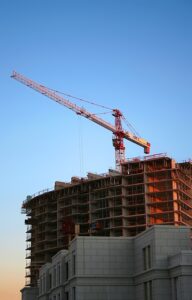Maximizing Rental Yields: A Guide to Executive Condominiums in Singapore’s Real Estate Market
The Executive Condominium (EC) segment in Singapore's property market is a significant and growing sector, appealing to both investors and homeowners due to its unique position as a hybrid of public and private housing. ECs offer competitive prices and p…….

The Executive Condominium (EC) segment in Singapore's property market is a significant and growing sector, appealing to both investors and homeowners due to its unique position as a hybrid of public and private housing. ECs offer competitive prices and potential for value appreciation, driven by factors such as population growth, government support for middle-income families, and the evolving preferences of buyers. The average price of ECs in Singapore has been on an upward trend, indicating a healthy market with strong investment potential. Strategic investments in ECs that are well-located near amenities and transportation, or those offering modern facilities and services after renovation, can yield high rental yields. Investors should stay informed about market trends, government policies, and the economic landscape to navigate supply and demand dynamics effectively and make informed decisions in this dynamic market. The average price of ECs remains a key indicator to watch for insight into investor sentiment and the overall health of the EC sector in Singapore.
Exploring the lucrative landscape of real estate investment in Singapore, this article delves into the appeal and potential of Executive Condominiums (ECs) as a viable investment option. With a focus on the average price of ECs in Singapore and their historical rental yields across regional hubs, we analyze how government policies shape development and pricing. Key factors influencing market demand, location, and amenities are examined to understand their impact on EC valuation. A comparative analysis of top EC projects with high rental yield unveils investment strategies that can maximize returns. Additionally, the role of renovation and value-addition is highlighted as a means to enhance potential yields. Finally, we project future trends, opportunities, and challenges in the Singaporean EC market to guide investors towards informed decisions.
- Understanding EC Projects and Their Appeal in Singapore's Real Estate Market
- The Impact of Government Policies on Executive Condominium (EC) Development and Pricing
- Analyzing Historical Rental Yields of ECs in Different Regional Hubs of Singapore
- Key Factors Influencing the Average Price of ECs in Singapore: Location, Amenities, and Market Demand
- Top EC Projects with High Rental Yield: A Comparative Analysis
- Investment Strategies for Maximizing Returns from EC Projects in Singapore
- The Role of Renovation and Value-Addition in Enhancing Rental Yield Potential of ECs
- Future Projections for EC Projects: Trends, Opportunities, and Challenges in the Singaporean Market
Understanding EC Projects and Their Appeal in Singapore's Real Estate Market
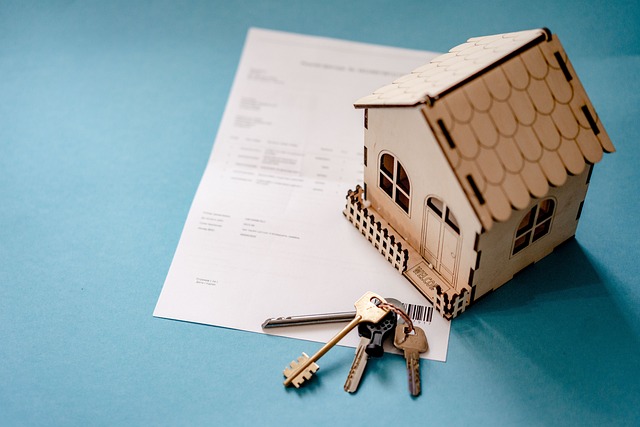
EC projects, or Executive Condominiums, represent a unique segment within Singapore’s real estate market, catering to both upgraders and investors with their versatile appeal. These hybrid developments offer the luxury and facilities of condominium living while providing the option for individuals to lease out their units under the Housing & Development Board (HDB) framework before they qualify as private property after a certain period. This feature makes them particularly attractive to investors seeking a property that can appreciate in value over time, especially given the average price of EC in Singapore has shown resilience and growth.
The allure of EC projects is further magnified by their location, which often includes proximity to mature estates or future growth areas, offering a blend of convenience and potential for capital appreciation. Additionally, ECs come with enhanced amenities similar to private condominiums, including swimming pools, gymnasiums, and playgrounds, catering to the diverse needs of modern families. This makes them an ideal investment opportunity for those looking to capitalize on Singapore’s property market, which has consistently demonstrated stability and growth over the years. Investors interested in the average price of EC in Singapore should consider factors such as the development’s age, location, and the prevailing market conditions before making an investment decision.
The Impact of Government Policies on Executive Condominium (EC) Development and Pricing
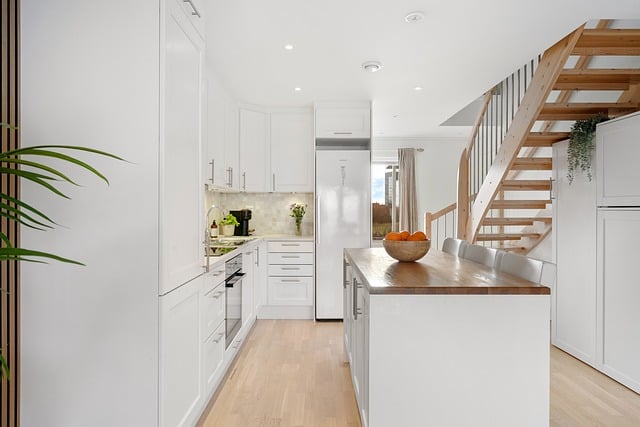
The real estate landscape in Singapore is significantly shaped by government policies, which have a profound impact on the development and pricing of Executive Condominiums (ECs). These policies are designed to ensure a balanced and sustainable property market, catering to both the needs of first-time homeowners and investors. For instance, the definition of an EC has evolved over time, reflecting the government’s commitment to making housing more accessible. The Average Price Of Ec In Singapore fluctuates in response to these policy changes, which can include eligibility criteria for potential buyers, loan regulations, and subsidy schemes. Developers must navigate these policies carefully to align their projects with the objectives set forth by the authorities, thereby influencing the pricing and attractiveness of new EC developments.
In recent years, the Singapore government has introduced measures such as the Additional Buyer’s Stamp Duty (ABSD) and Total Debt Servicing Ratio (TDSR) to cool down the property market and prevent speculative buying. These measures indirectly affect the average price of ECs by altering demand patterns. Prospective buyers and investors are more cautious, considering the long-term implications of their purchases against the backdrop of these regulatory frameworks. As a result, developers must calibrate their pricing strategies to reflect both market sentiment and the anticipated trajectory of government policies, aiming to offer competitive pricing while maintaining profitability in the EC segment of the Singapore property market.
Analyzing Historical Rental Yields of ECs in Different Regional Hubs of Singapore

In Singapore, the Executive Condominium (EC) segment has emerged as a significant investment opportunity for both families and investors due to its unique positioning between public and private housing. To gauge potential returns from EC investments, it is prudent to analyze historical rental yields in various regional hubs across the island. These yields can offer valuable insights into the performance of ECs as an asset class over time. Investors keen on understanding the average price of ECs in Singapore will find that prices have varied significantly across different regions and over different time periods, influenced by factors such as the development’s age, location, and the overall property market conditions. Historical data indicates that rental yields for ECs have been competitive when compared to both public housing and private condominiums, often appealing to middle-income families transitioning from HDB flats or to upgraders looking for a larger space without the premium prices of fully privatized condos. By examining the historical performance of ECs in areas like Tampines, Sengkang, and Woodlands, investors can discern trends and patterns that inform decision-making regarding property investment. These regional hubs have shown varying rental yields, with factors such as proximity to amenities, connectivity to public transport, and the quality of schools in the vicinity playing a role in shaping these returns. Prospective investors should consider the average price of ECs in Singapore alongside historical rental yields when evaluating the potential for high rental yields in these regional hubs. Such an analysis can help in determining which areas might offer the best investment opportunities based on past performance and current market trends.
Key Factors Influencing the Average Price of ECs in Singapore: Location, Amenities, and Market Demand
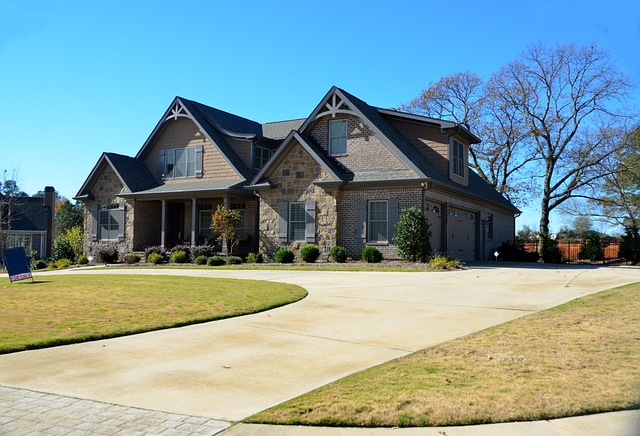
The average price of Executive Condominiums (ECs) in Singapore is significantly influenced by several key factors, with location being a prime determinant. Proximity to MRT stations, schools, and commercial hubs can substantially boost property values. For instance, ECs situated within mature estates like Bishan or Ang Mo Kio often command higher prices due to their well-established infrastructure and amenities. The availability and quality of on-site facilities also play a pivotal role in shaping the market’s perception and subsequent valuation of these properties. State-of-the-art gyms, tennis courts, swimming pools, and playgrounds not only cater to the lifestyle needs of residents but also enhance the desirability of the development, influencing the average price of ECs in Singapore.
Market demand, influenced by demographic shifts and economic factors, is another critical driver of EC prices. Young couples, particularly those eligible for housing grants, often find ECs an attractive option due to their affordability and the potential for future revaluation to condominium status. The balance between supply and demand also affects pricing; a scarcity of available EC units in popular areas can lead to price appreciation. Developers must carefully consider these factors when pricing new EC projects, as they directly impact the investment potential for buyers and the rental yield they can expect. Monitoring trends in housing grants, population growth, and economic stability is essential for understanding how these elements influence the average price of ECs in Singapore.
Top EC Projects with High Rental Yield: A Comparative Analysis

2023 has seen a keen interest in Executive Condominiums (ECs) in Singapore, particularly those that offer high rental yields. Prospective investors often seek out EC projects that not only appreciate in value over time but also generate steady income through renting out the units. This comparative analysis examines some of the top EC projects known for their high rental yields, taking into account factors such as location, amenities, and market demand.
The average price of an EC in Singapore has been on an upward trajectory, reflecting the high demand for these properties. Projects like The Canopy at Sembawang Hills and Parc Life in Sengkang have consistently shown robust rental yields, attributed to their strategic locations near LRT stations and proximity to amenities such as shopping centers, schools, and parks. Another standout is the Rivercove Residences at Canberra Link, which has been popular among families due to its close vicinity to the upcoming Canberra MRT station and a plethora of recreational facilities. These projects not only cater to the lifestyle needs of residents but also make them attractive options for tenants, thereby maintaining high occupancy rates and ensuring lucrative rental yields for investors. In this analysis, we compare these projects against others like Brownsfield at Canberra and Ecoplace at Anchorvale to determine which offers the best return on investment based on rental potential. Investors should consider the average price of ECs in Singapore as a starting point but also delve into the specifics of each project’s yield history, maintenance fees, and future development plans to make informed decisions.
Investment Strategies for Maximizing Returns from EC Projects in Singapore
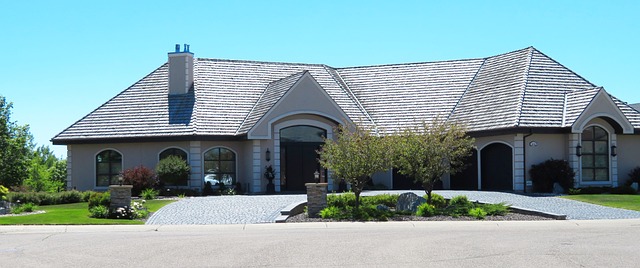
Navigating the real estate market in Singapore, particularly in Executive Condominium (EC) projects, requires a strategic approach to maximize returns. Investors eyeing high rental yields should consider the Average Price Of EC In Singapore as a benchmark, as prices can influence both entry costs and rental rates. A key investment strategy is to identify ECs located in mature estates or regions with strong rental demand, such as Tampines, Sengkang, or Woodlands. These areas often have a consistent need for rental properties due to their proximity to amenities, schools, and business hubs, which can lead to steady rental income.
Another prudent strategy is to invest in EC projects during the initial leasehold years when prices may be more attractive compared to the later years when they may transition to private condominium status. By leveraging the initial pricing structure and the subsequent appreciation of the property, investors can capitalize on both rental income and property value growth over time. Additionally, staying abreast of government policies and their implications on EC eligibility and resale prices is crucial for making informed investment decisions. Keeping a long-term perspective and understanding the market dynamics will position investors to reap the highest potential returns from EC projects in Singapore.
The Role of Renovation and Value-Addition in Enhancing Rental Yield Potential of ECs

When considering the enhancement of rental yield potential for Executive Condominiums (ECs) in Singapore, renovation and value-addition play pivotal roles. These upgrades not only refresh the aesthetic appeal but also modernize facilities and services, aligning the EC with contemporary living standards. A strategic facelift can significantly boost the property’s marketability, making it more attractive to prospective tenants who seek modern conveniences and amenities. The average price of an EC in Singapore has been on an upward trajectory, reflecting the high demand for such properties. Therefore, value-addition through renovation becomes a critical factor in capturing a higher rental yield.
Investors looking to maximize their returns from ECs should consider renovations that enhance both functionality and appeal. This could range from kitchen and bathroom upgrades to the installation of smart home systems, which are increasingly sought after by tech-savvy renters. The strategic positioning of an EC within a mature or developing estate can also influence its rental potential. Proximity to key amenities like shopping centers, schools, and public transport nodes further enhances its desirability. By carefully assessing the current state of the property and the surrounding neighborhood, investors can identify targeted renovations that will resonate with the target tenant demographic, thereby increasing the EC’s rental yield.
Future Projections for EC Projects: Trends, Opportunities, and Challenges in the Singaporean Market

The Executive Condominium (EC) segment in Singapore has been a dynamic part of the property market, offering a hybrid option between public and private housing. With the average price of EC units showing a consistent upward trend, investors and homeowners alike are keenly watching the trajectory of these properties. Future projections for EC projects indicate a robust market, underpinned by a combination of factors including population growth, government policies, and the evolving preferences of homebuyers. Trends suggest that as new EC developments come onto the market, they will continue to attract buyers due to their affordability and the benefits of subsidized housing schemes for eligible applicants.
Opportunities abound for investors in the EC space, especially with the Singaporean government’s efforts to meet the housing needs of the middle-income group. The strategic location of these projects, coupled with the high rental yield they often command, makes them an attractive proposition. However, challenges persist, such as the balance between supply and demand, which can be influenced by economic conditions and changes in policy. Additionally, the eligibility criteria for purchasing EC units are subject to change, affecting the pool of potential buyers. Investors must stay informed about these dynamics to capitalize on the opportunities while navigating the challenges. The average price of EC in Singapore serves as a barometer for market sentiment, reflecting investor confidence and demand-supply conditions. As such, monitoring this metric is crucial for anyone interested in the EC market’s trajectory.
Singapore’s Executive Condominium (EC) market has long been a focal point for investors seeking robust investment opportunities. This article has shed light on various facets of EC projects, from their appeal within the real estate landscape to the multifaceted influence of government policies and regional demand dynamics. Historical rental yields have shown that with strategic considerations, such as location, amenities, and market trends, investors can achieve high returns. Our comparative analysis of top-performing ECs underscores the potential for substantial rental yields, which is a testament to the viability of these investments. For those interested in maximizing their returns, renovation and value-addition strategies are pivotal. Looking ahead, staying abreast of market trends and understanding future projections will be key to navigating the opportunities and challenges inherent in the EC investment space. The average price of ECs in Singapore continues to reflect the balance between supply and demand, making it a compelling market segment for both current and prospective investors. As the landscape evolves, EC projects remain a beacon for savvy real estate investments in this vibrant city-state.



